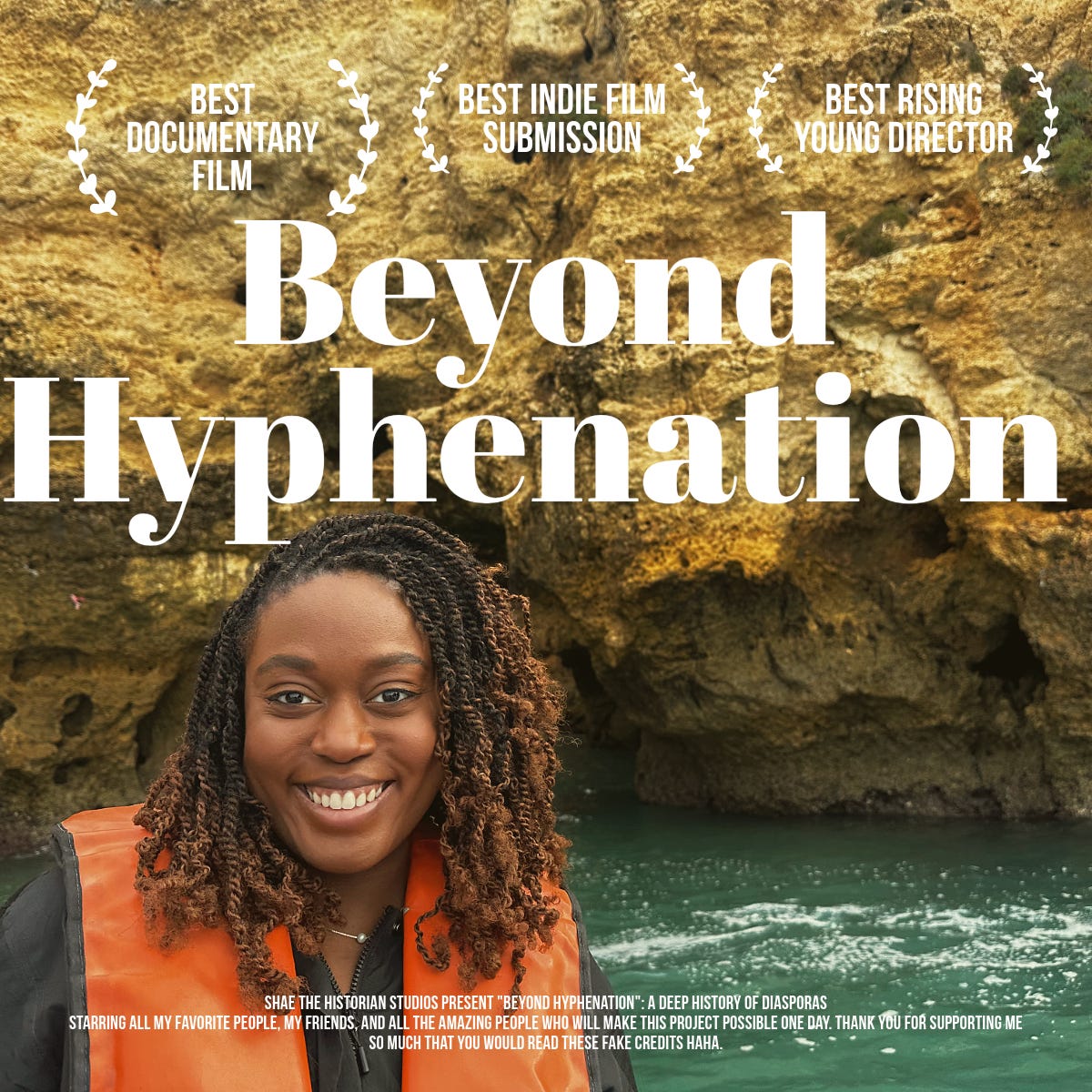Grab your life jacket, we're going on an adventure
Beyond Hyphenation: A Deep History of Diasporas
We all have a deep desire to know some big WHYs. For example, why was I born at this point in history, to this family, on this soil, with this nationality, speaking this language, and the questions can go on and on.
We also want to know WHERE. Where did I come from? In the past few decades, it feels like there’s been a plethora of companies selling us the aspirations of knowing at least genetically where we come from. We take DNA tests, search ancestry websites, and watch shows and documentaries that can potentially help us find our roots.
And there’s nothing wrong with any of this. We all want to know more about where we come from.
Both past and present, people have had to move from where they call home and make new ones in foreign lands. This wasn’t just a mass movement of people but of culture, ideas, traditions, and ways of being. Movement created diasporas and with that generations of people charting a new path towards defining who they are relative to a place they call home.
I am a diaspora kid and have been deeply interested in the world around me ever since I was young. Growing up, I remember reading encyclopedias because I just wanted to devour as much information as I could. I had a hunger for understanding things. I remember thinking to myself once when I was kid, “I am taking unassisted breaths on a floating rocking that’s just a speck in something called a universe?” Heavy philosophy for a kid–I know haha.
My curiosity originally led me down a science path, but in college, I stumbled across a document that completely changed the course of my life. Now I am chasing my curiosity through the halls of history.
If you haven’t noticed yet, this week’s newsletter contains a voiceover! Now you can listen on the go instead of reading. Scroll up and enjoy 🎧😌
But enough about me. I want to share with you a Toni Morrison quote that has piqued my curiosity since I first heard it.
“In this country American means white. Everybody else has to hyphenate”
Nigerian-American
Korean-American
Chinese-American
Indian-American
etc.
These are all examples of people who live in a hyphenated state. What Toni Morrison was pointing to was this idea that being American is one thing, being another nationality is one thing, and those two things can’t mix. In 1945, the United Nations was founded and so was the increased desire to categorize people into nationalities and nation-states.
However, I know many of us don’t fit neatly into a pre-determined box. Maybe you were born in one place, but left at such a young age and haven’t seen it since. Or maybe you grew up in one place and are now raising kids on a completely different side of the world. This isn’t new. Historically, governments have tried to label people. Documenting people became a way of identification and “making people legible.”
Yet, when I heard this Toni Morrison quote again a few months ago, I had one simple question–
How can I move beyond hyphenations to get at the heart of who people are and the histories they carry?
There’s more to read about a person or place than just the titles and categories they’ve been assigned.
I am excited to share with you this new series called
Beyond Hyphenation: A Deep History of Diasporas
So join me as I explore the history, culture, and genealogies of diaspora communities around the world. I will make a humble attempt at leading all of you closer to answering the big questions like –Where do I come from? Who am I becoming?
With the increasing movement of people and globalization, we’re seeing a new generation of diasporans defining what it means to grow up with a blend of multiple cultures, backgrounds, and traditions.
However, the melange of cultures we see today is not new, there are deep histories of people and communities who found themselves creating connections, love, culture, and joy in every corner of the world. I want you to follow along as we uncover the evolving meaning of diaspora both past and present.
So what can you expect from me this summer?
Well, originally, I wanted to teach a mini history course about this, but instead, I want to use the power of narrative history to not just tell you about this history, but to show you. As I learned through a meme recently (which I cannot find as of writing this), a lot of people don’t know what it is an academic or a professional researcher does, even less so a professional historian.
For me, history is the act of interrogating the past, discovering new stories, and unpacking old ones. So call me Enola Holmes because we’re going to attempt to solve and answer a lot of questions this summer.
So where are we going to start?
Well, I was floating on a boat in the middle of the Mediterranean Sea, when I heard a gentle voice behind me. I turned to look at the person whose voice I heard and then……
You’re going to have to find out next week – stay tuned!
Until then,




